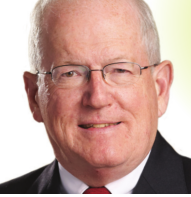Tangential matters dot package to get rankand-file House members behind it
Observers of the New Hampshire legislative session this year have noticed some unique elements of it, and some curious ones. Unique arrangements for in-person meetings for “session days” in the House have meant fewer of them, and arranging them in a larger venue, in Bedford this time. The sessions so far have been somewhat contentious, with fights between the parties and a significant and irresponsible segment of the GOP members refusing to follow the rules to make such sessions safe during the pandemic, making the work of leadership harder.
What is somewhat curious, with a strong Republican majority in both houses of the Legislature, is how difficult it apparently has been for House leadership to get the GOP rank and file behind the budget process.
House Finance Committee Chair Kenneth Weyler, a talented veteran of many sessions and budgets, has had to add a number of tangential matters to the budget, reportedly to attract enough votes for it to pass in the House, where all budgets have to originate.
Provisions
on banning diversity training, pro-life provisions, provisions
restricting the emergency powers of the governor during a state of
emergency, and other concessions to more conservative members of the
House, have been added.
Weyler
was heard to observe, during one of the drafting session, “It is hard
to watch sausage being made,” a reference to the give-and-take of
legislative maneuvering.
What
to expect when the budget gets to the 24-member Senate is a matter of
speculation, with many hoping the Senate will remove some of the
unrelated provisions before it goes to the reconciliation process of a
committee of conference. Whether this will work or not and what Governor
Sununu will do with a budget containing provisions he opposes, will be
interesting to see.
At this point in the legislative calendar, each
house is supposed to have taken action on the bills that originated in
it, with those approved crossing over to the other body for
consideration. This has been a major challenge in light of the
restrictions imposed by the pandemic. Virtual hearings have allowed more
members of the public to observe and participate
in the legislative process, which has been a mixed blessing, since it
also prolonged many committee hearing days.
One
of the committees of the House that experienced long days was the
Election Law Committee, chaired by Rep. Barbara Griffin, a Goffstown
Republican.
In New
Hampshire, as in many states, there has been a concerted effort to
change election laws in many ways, an effort claimed to be to assure
safe and secure elections.
After
the 2020 elections, with record turnout and virtually no evidence of
fraud or irregularities, there does not appear to be any crying need for
changes in New Hampshire law, although a counter effort by other
legislators, to make some of the emergency pandemic-related changes
permanent, also have been introduced.
Secretary
of State William Gardner’s office testified on almost all of the bills,
making a strong effort to retain the system that has worked so well in
New Hampshire traditionally, in-person voting except in the case of
legitimate, constitutionally allowed, absentee voting.
Certain
of the emergency procedures, like early processing of absentee ballots,
clearly worked and could be made permanent, but efforts to make “no
excuse” absentee voting and other changes permanent need study, and the
assurance that they do not run afoul of the state Constitution, in which
a lot of the rules have been enacted by amendment.
In
short, the efforts of the GOP to fix what appears not to be broken and
the efforts of many to go to an early voting or majority mail-in voting
should be viewed with skepticism and resisted, without clear evidence
that they will be making improvements over traditional, in-person,
Election Day voting, which has resulted in New Hampshire having among
the highest turnouts in the country, year after year.
As
vaccinations increase and the system is opened up to everyone over the
age of sixteen, everyone should take time to recognize the generally
successful and well-organized job the state of New Hampshire has done
getting people vaccinated.
While
there have been occasional issues, and the system has not been perfect,
having the hope of returning to normal and the opportunity, after
vaccination and the resulting two-week period to make it totally
effective, to see people, go out to eat and otherwise return to whatever
normal is going to be is a relief.
As spring comes, hope returns, as long as we are smart enough not to rush it, and continue to observe the required protections.
Stay safe!
Brad Cook is a Manchester attorney. The views expressed in this column are his own. He can be reached at bradfordcook01@gmail.com.